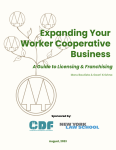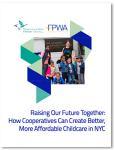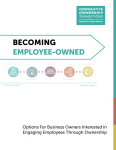Expanding your Worker Co-operative Business: A Guide to Licensing & Franchising
This Guide is for worker-owners, cooperative developers, lawyers, technical assistance providers and others thinking about expanding worker cooperative businesses. We focus specifically on expansion through licensing and franchising.



